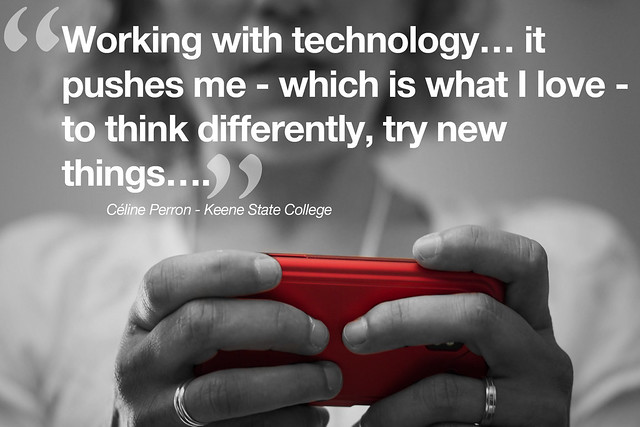 |
| Photo Credit to celt.keene on Flickr |
Focus Question: What are search engines and how do they work?
Search engines have been my saving grace since high school. The use of search engines helped fuel my research papers with facts, find study material for exams and really facilitated the acquisition of the bulk of information I obtained through the years. The definition in the book is clear, concise and as simple and accurate as can be regarding search engines: "Search engines retrieve information from the Internet". Any person can access vast amounts of information regarding any topic by using key words in a search engine. For example, if I were interested in learning more about President Nixon I search the keywords "President Nixon" in a search engine and thousands of results containing websites, articles, images and video would appear. Among the more popular search engines are Google.com, Ask.com, Yahoo.com and AOL.com; although, there are specialized search engines available depending on the subject matter of the keywords. Webopedia is a search engine exclusively for researching computer and internet related information and terminology. To the novice search engine user the task of finding results may seem daunting at first, but by using specific key words the process is much simpler. The information that is out there waiting to be discovered is truly infinite.
The video below demonstrates how the powerhouse internet search engine Google works in regards to retrieving information to their database. I find it so interesting how the management of search results came about from mathematical calculations and formulas.
Tech Tool Link: LibriVox
LibriVox is an awesome website where the user can go on and listen to recordings of published books for free. Volunteers read the books and the audio recordings are made accessible to the public. This is such a wonderful idea, especially for young children or those who have a visual impairment. This website allows for all individuals to experience the joy of books, poetry and many more literary gifts. I think as a teacher this is a great way to incorporate technology and literature into a lesson plan, which I don't believe is as easy to integrate as would a math or science subject be. LibriVox also enables the student to broaden their literary horizon. Reading certain books may present an intimidating situation for slower readers, but if they are able to listen to the material while they read the quest to successfully reading the material appears less treacherous. I'm so glad to see that there websites likes this available to the public, when given the appropriate tools and opportunities we all can flourish way beyond our expectations.
 |
| Photo Credit to kayray on Flickr |
Summary & Connection:
Although sometimes daunting or difficult to maneuver, the internet really does allow for greater accessibility to information and knowledge. It is important for the teacher to guide the students into proper and efficient internet research (such as using search engines) as well as how to process the discovered information. There are several ways to search information with keywords using a search engine: free-text, keyword/exact match and Boolean. The better the user becomes at recognizing useful ways to search for information the easier it will be. With the myriad of useful information available there is also just as much incorrect and harmful information to be unearthed. In order to differentiate between the various types that are present the user must be proactive in critical reading, reading labels, distinguishing between URLs and developing criteria for evaluating the website or resource. The internet also presents the opportunity for plagiarism, whether intentional or not, to be easily done. The teacher must be sure to discuss the issue of plagiarism, how it can happen, and the ramifications that will occur as a result. Personally, I cannot fathom life without the internet, using it has become second nature. Every day there is a new component, website or resource that I find; and although I have run into some fallacies, the good outweighs the bad when researching information.
Resources:
Maloy, Robert, Verock-O’Loughlin,Ruth-Ellen, Edwards, Sharon A., and Woolf, Beverly Park (2011). Transforming Learning with New Technologies. Boston, MA: Pearson Education, Inc. ISBN:10 0-13-159611-X, ISBN:13 978-0-13-159611-5
I find this commercial to be a hilarious and accurate portrayal of how most individuals view information they receive from the internet. Beware: not all information from the internet is true!
Yes, I love that commercial and need to remember to add that to my lesson materials! :) You have selected some very effective videos and photo to enhance your text response - love how that happens. Thanks for sharing your perceptions and potential uses of LibriVox in the classroom - such a valuable resource indeed.
ReplyDelete